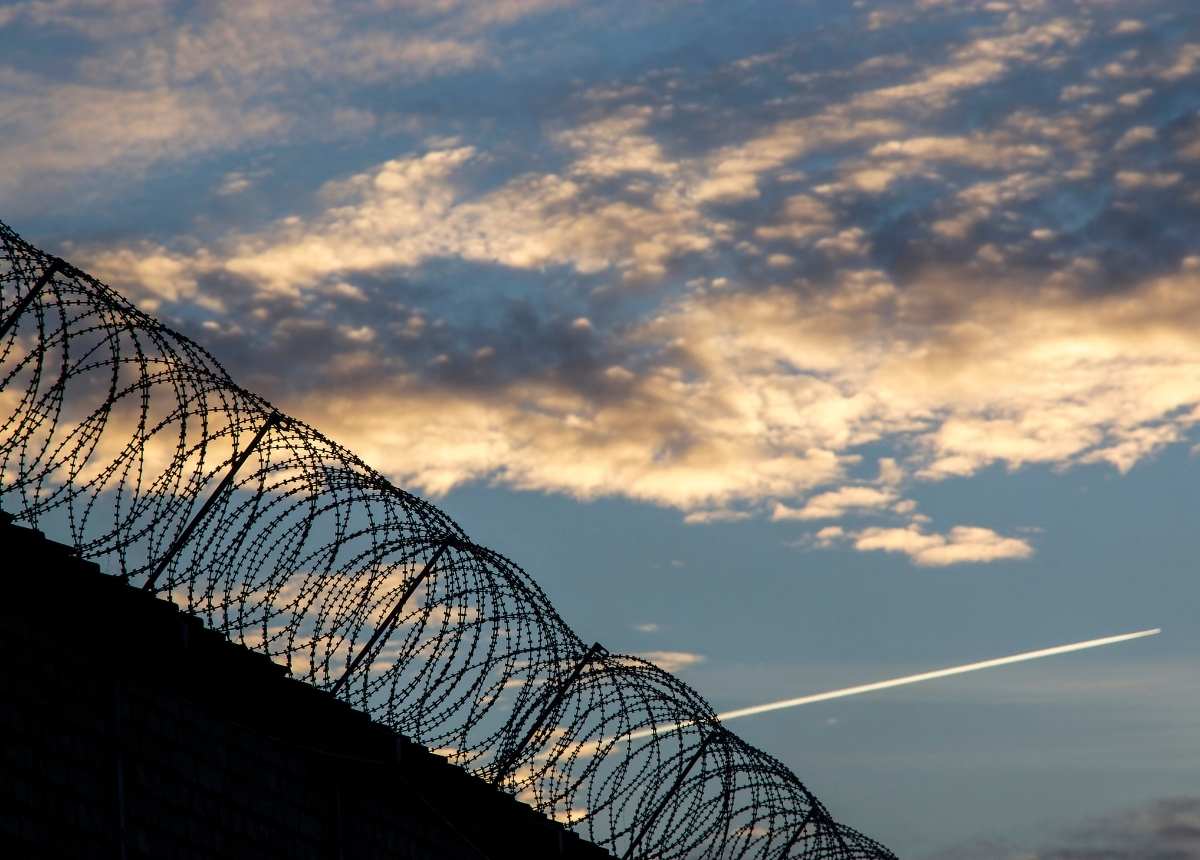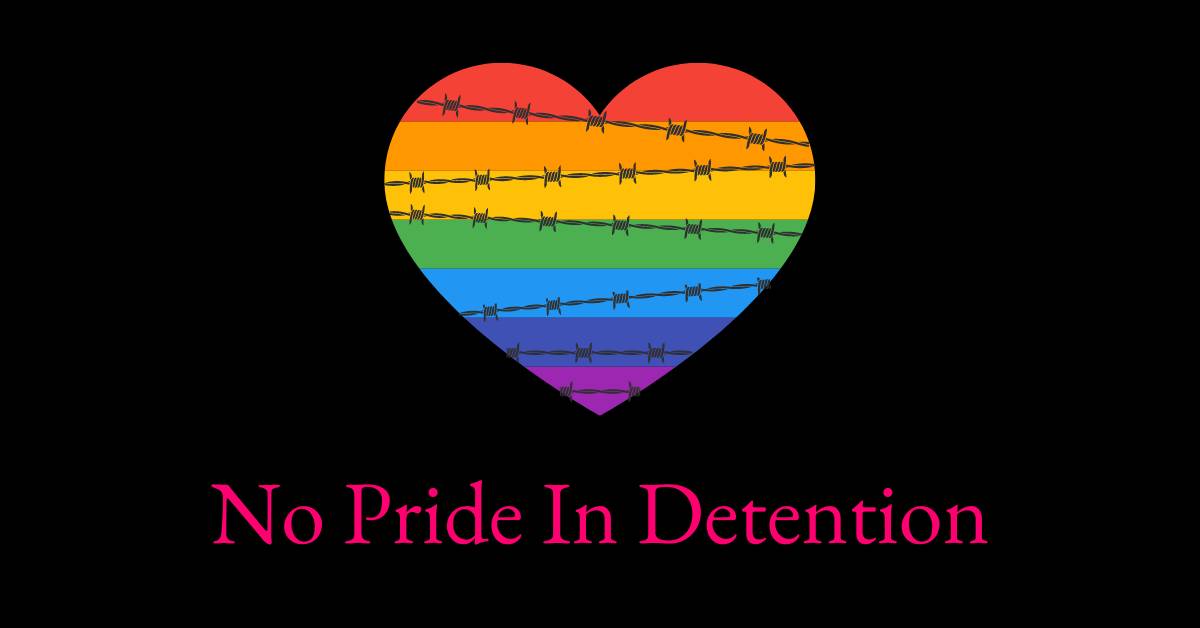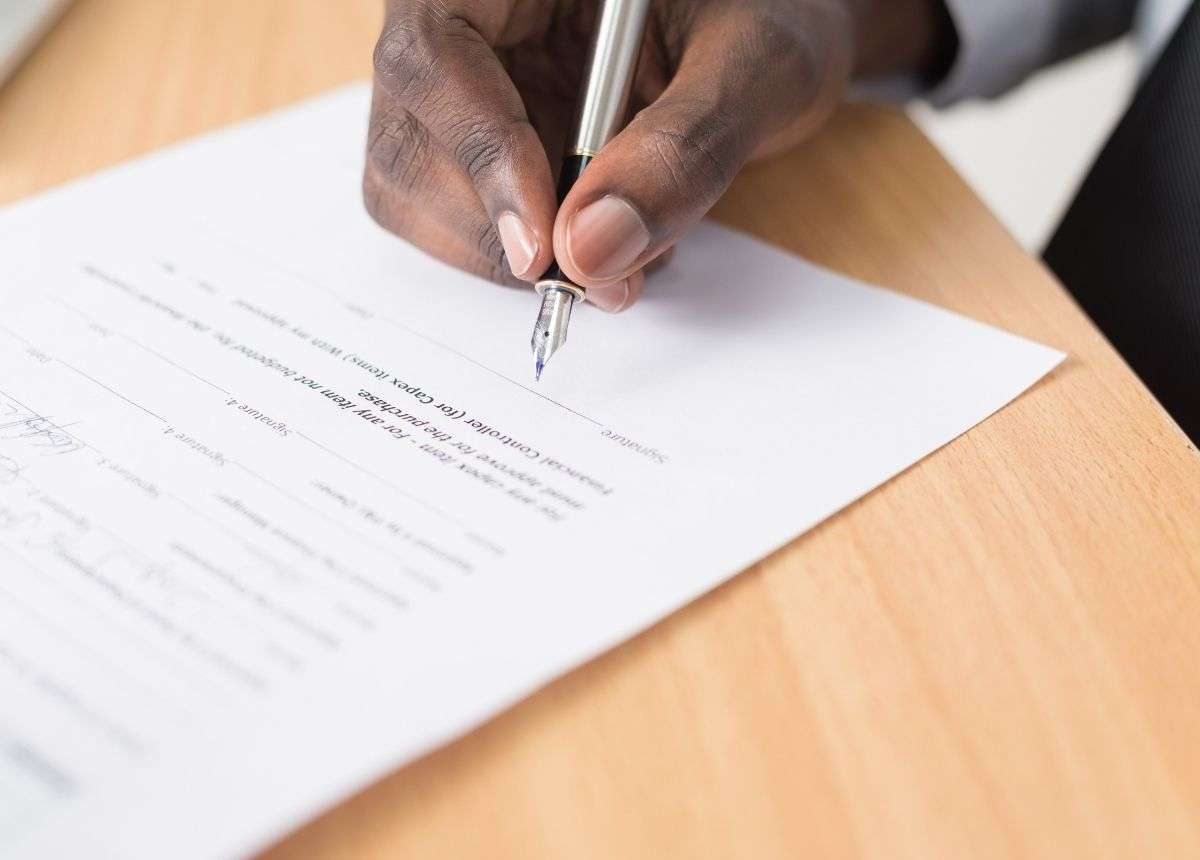3 things our new PM could do to help LGBTQI+ people seeking asylum in the UK
With Liz Truss replacing Boris Johnson as Prime Minister today, we look at what she could do right away to support LGBTQI+ people in our asylum and immigration system.
There is no doubt that recent government policy and legislation have put the lives of LGBTQI+ people at even greater risk. The Nationality and Borders Act has made it harder for people fleeing persecution to receive protection here, whilst the Rwanda plan threatens to send them thousands of miles away to a place where LGBTQI+ people face violence and discrimination.
Boris Johnson’s government has also overseen a sharp rise in the number of people held in immigration detention in the last year, adding to his legacy of cruel immigration practices.
But a new Prime Minister means there is a chance for a change of direction. We hope that Truss, former Secretary of State for Foreign, Commonwealth and Development Affairs, Minister for Women and Equalities, and a supporter of equal marriage, will reverse the downward trend, and halt the deterioration of rights for LGBTQI+ people seeking safety here.
So here are three things Liz Truss could do to help LGBTQI+ people in the UK seeking asylum:
1. End LGBTQI+ detention
Immigration detention is unjust and inhumane. It separates people from their families and seriously damages their mental and physical health. For LGBTQI+ people, it can be particularly dangerous as they face bullying, harassment and abuse. The UK is the only country in Europe where people can be detained indefinitely, with no idea when they might be set free.
Our No Pride in Detention campaign calls for an end to LGBTQI+ people being held in detention, and a 28-day time limit on all detention. These reforms are urgently needed to limit the damage of this harmful, unjust and expensive system.
If you agree that our new Prime Minister should act now and end LGBTQI+ detention, please tweet Liz Truss today.
2. Scrap the Rwanda plan
In April 2022, the government announced plans to send people arriving in the UK to Rwanda to have their asylum claims processed there. Although so far, the policy has been held up by legal challenges, the government is still planning flights for this year.
Rwanda is not safe for LGBTQI+ people: they are not legally protected, and are subject to entrenched discrimination, violence and abuse, often from security officials. In the past Rainbow Migration has even supported LGBTQI+ Rwandans seeking safety in the UK.
Innocent Uwimana, a gay man from Rwanda, told us how dangerous it is for LGBTQI+ people there and urges the government to ditch the proposal.
“Being a sexual minority in Rwanda means living
in terror and violence.” Innocent Uwimana
Liz Truss has backed the catastrophic scheme so far, but she must scrap it and welcome asylum applications made in the UK instead. Banishing people thousands of miles away presents a real and present danger to anyone seeking asylum in the UK, and especially LGBTQI+ people.
3. Reverse the changes to the standard of proof for asylum claims
How would you prove your gender identity or sexual orientation if a total stranger asked you to? Providing evidence that you are LGBTQI+ is a huge obstacle to overcome.
The new Nationality and Borders Act places unreasonable expectations on LGBTQI+ people seeking asylum by setting an even higher bar to “prove” their sexual orientation and/or gender identity, and therefore increasing the likelihood of LGBTQI+ people being refused asylum.
LGBTQI+ people fleeing persecution might have spent their entire lives hiding who they are for their own safety. The only evidence some will have is their own word.
Proving sexual orientation, gender identity and expression, or sex characteristics, is difficult and distressing, and passing a law that made it harder was heartless. Raising the standard of proof means hundreds, or even thousands, of LGBTQI+ people could be returned to countries where they face torture, imprisonment, or death.
There are many points in the Nationality and Borders Act which need withdrawing but reversing changes to the standard of proof for asylum claims is urgent and could prevent the loss of LGBTQI+ lives.
Worrying rise in immigration detention shows need for urgent reform
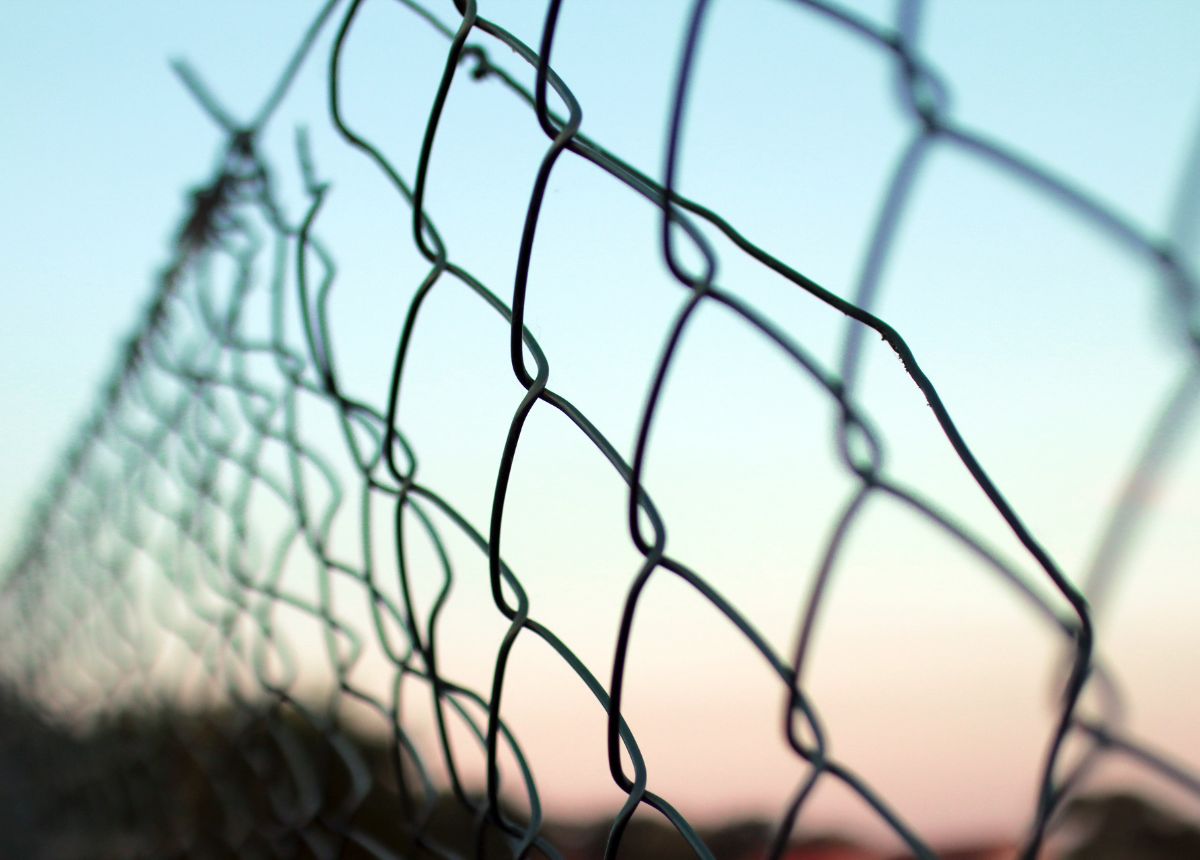
During the height of the pandemic there was a dramatic fall in the number of people held in immigration detention in the UK. This was a golden opportunity to shift away from detention towards community-based alternatives that have been shown to provide better outcomes for less money. But instead of seizing this opportunity, it appears that this government is heading in the opposite direction.
There has been a general downward trend in the number of people entering immigration detention since the peak in 2015, with a sharp fall in 2020 and 2021 as fewer people were detained due to Covid-19 restrictions.
However, since pandemic restrictions eased last year the numbers have risen again sharply. In fact, in the year ending March 2022 the number of people entering detention (25,282) was 9% higher than the pre-pandemic levels in the year ending March 2020.
Alongside this rise in the number of people entering detention, we have also seen a troubling drive to open more detention centres. In August 2020 – when the number of women held in immigration detention had fallen below 20 – the government decided that the infamous Yarl’s Wood would no longer operate as a long-term detention centre for women (it was re-purposed as a short-term holding facility for men).
However, by November that year women were being detained there once again, and a year later the government announced the opening of a new detention centre for women in County Durham. Around 80 women were locked up at the new centre over the Christmas week in 2021, almost filling the centre to capacity immediately.
The government has also backtracked on Campsfield detention centre in Oxfordshire. Its closure was announced in November 2018 as part of a commitment to reduce the number of people detained in the UK. But in June this year, the government announced that it would re-open as a larger 400-bed detention centre for men – in part to support the government’s cruel plan to detain and send people seeking asylum to Rwanda.
Such rapid growth in immigration detention comes at significant human cost. Last month we learned that in 2021-22 a record number of 572 people had been unlawfully detained, causing untold suffering and resulting in £12.7m worth of compensation payments.
In this context of rising numbers in detention, an expanding detention estate and soaring unlawful detentions, we need curbs on this government’s powers to detain more than ever.
Nobody should be detained indefinitely with no idea when they might be set free. So until the practice of immigration detention is ended in the UK, it must be subject to a 28-day time limit to reduce the harm caused and force the government to review people’s cases more quickly.
The government should also look again at the list of groups recognised as “particularly vulnerable to harm in detention”. Although trans and intersex people are included (and therefore less likely to be detained), lesbian, gay and bisexual people are not – despite evidence that they also experience LGBTQI-phobic bullying, harassment and abuse inside.
Read more about our campaign for a time limit and an end to LGBTQI+ detention and add your name in support.
LGBTQI+ detention research
Are you LGBTQI+ and have you been held in immigration detention in the UK at any time since September 2016?
You could help people to understand what detention is like for LGBTQI+ people and improve the treatment of LGBTQI+ people going through the asylum and immigration system in the future.
Laura Harvey at the University of Brighton is doing a research project about LGBTQI+ people's experiences of detention in the last 6 years.
To find our more or volunteer to take part, email Laura on l.j.harvey@brighton.ac.uk or text or call her on 07857 089549.
You can ask for more information about the research in a different language, or ask any questions you want before deciding to take part.
No Pride in Detention: End the Detention of LGBTQ+ People
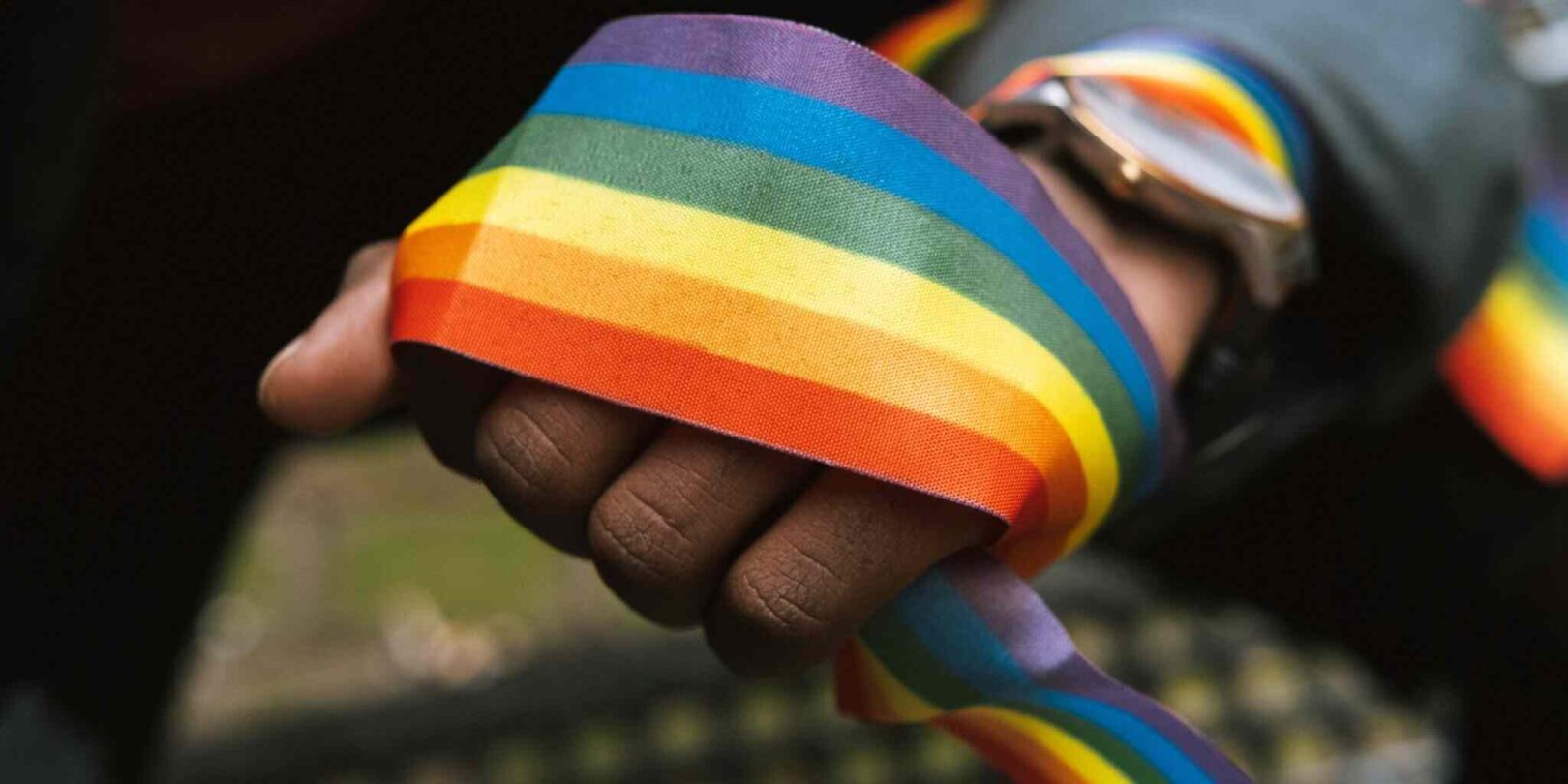
By Qussai Ramzi, this article was originally published at IMIX. Qussai Ramzi is a member of Rainbow Migration‘s campaigns advisory group
When I think of pride, I think of joy and freedom, of celebrating one’s identity and all its intersections both inwardly and outwardly. I also think of celebratory marches decorated with rainbow flags that tower over the streets and buildings, of all the times I’ve marched hand-in-hand with friends and family (chosen and otherwise), showing up in our full glory.
The chants of our pride are far-reaching, but there are places where they do not echo. Surprisingly, these places actually exist in this country. They are places where pride does not occur and within whose walls people yearn to celebrate with us and to enjoy the same freedoms we enjoy and take for granted, but can’t.
These places I am talking about are none other than the immigration detention facilities that are scattered all over the UK. Their intent is to police, among others, those who come to this country seeking safety from persecution for reasons that include their sexual orientation and gender identity/expression. Behind the walls of these facilities, visibility can be dangerous, and the suppression of gender and sexual diversity can be imperative to survival.
We are not all born equal, and this is a fact illustrated by the mere idea that some of us must claim asylum to evade death and persecution, and in the process will be subjected to not only the fatal process of fleeing, but also to being locked up upon reaching “safety”.
The right to asylum is enshrined in the Universal Declaration of Human Rights and the 1951 Refugee Convention, of which the UK is a signatory. Why then, are those seeking asylum continually framed as a security threat? And why are human rights slowly being dismantled at every juncture in the UK? As the government is trying to rid itself of its responsibilities by passing the Nationality and Borders Act and by sending people seeking safety in the UK 4,000 miles away to Rwanda, unknown numbers of LGBTQI+ people are being held in immigration detention, not knowing their fate. They are detained without courts or judges, in prison-like conditions, and for unlimited amounts of time.
Conditions in immigration detention are not good for anyone and are particularly unsafe for LGBTQI+ people, for whom the impact of detention can be devastating. It deprives them of their freedom and cuts them off from support networks. For those trying to “prove” their sexual orientation or gender identity to the Home Office as part of an asylum claim, being forced into the closet to stay safe in detention is a huge setback. LGBTQI+ people in detention experience discrimination, bullying and violence, which can re-traumatise those who have fled violent persecution elsewhere.
I am not new to campaigning on human rights issues. When approached to join Rainbow Migration’s Campaigns Advisory Group, I felt it important to call for an end to LGBTQI+ detention and a 28-day time limit for all immigration detention. I’ve worked on Refugee and Migrant Rights campaigns before as part of my role at Amnesty International UK, and have worked with refugees in detention at The Bike Project and heard heartbreaking stories. Their stories and their tireless calls for an end to detention remain widely unheard, and are outside the scope of most LGBTQI+ rights campaigns.
We launched our campaign No Pride in Detention: End the Detention of LGBTQI+ People, because nobody should be detained indefinitely with no idea when they might be set free, and no LGBTQI+ person should be locked up and subjected to LGBTQI-phobic bullying and abuse. The engagement and mobilisation of LGBTQI+ communities on this issue is imperative to affecting change, and if enough people are willing to take action, enough pressure can be placed on the government to reform this issue, and the wider injustices of the immigration/asylum system.
Strides have been made already, with the government recognising that trans and intersex people are particularly at risk of harm in detention and should not be detained in most circumstances. But this policy must be widened to include all LGBTQI+ people. We believe that the exclusion of LGBTQI+ people from detention will increase the pressure on government to explore and invest in alternatives to detention that are more humane and recognise the vulnerabilities and risks faced by the LGBTQ+ community. Immigration detention is not the right solution for anyone and wider reforms are needed, supporting people to resolve their immigration status within the community.
As we go out and celebrate this month, let us also try to reflect on how our freedom is tied to the freedom and liberation of others, and that we are not entirely free when some of us are locked up while seeking safety from persecution.
Let us not only envision, but also fight for a world where no-one can be held indefinitely without a charge, where no LGBTQI+ people are detained and where humane, community-based alternatives are developed.
Calling for an end to LGBTQI+ detention and a 28- day time limit for all immigration detention
With the support of five other national LGBTQI+ charities, today we are launching ‘No Pride in Detention’, a campaign calling for an end to the immigration detention of LGBTQI+ people and a time limit to ensure no-one is detained for more than 28 days.
The campaign is launching during Pride month and at a time when unknown numbers of LGBTQI+ people are being held in immigration detention in the UK, as the government does not collect or monitor data on this. They are detained without judicial oversight, in prison-like conditions, and for an indefinite amount of time.
Detention is most often used to facilitate the removal of a person from the UK, in which case there must be a realistic prospect of removal within a reasonable timeframe. However, most people detained are instead released on bail or otherwise, their detention having served no purpose other than to isolate and traumatise them.
“Detention is awful for anyone, but our research found that for LGBTQI+ people the impact can be devastating. As well as being deprived of their freedom and cut off from support networks, they face LGBTQI-phobic bullying, discrimination and abuse from staff and others in detention”, explains Leila Zadeh, Executive Director at Rainbow Migration.
As part of their asylum process, LGBTQI+ people must “prove” their sexual orientation or gender identity by providing evidence. This turns into an even more difficult task when they are locked up. As Leila describes, “people in detention can’t visit LGBTQI+ venues, join support groups or attend Prides. In fact, detention is likely to force them back into the closet to stay safe while they are detained”.
Since 2016 the Home Office has recognised that trans and intersex people are particularly at risk of harm and should not be detained in most circumstances. “We are urging the government to extend this recognition to all LGBTQI+ people”, says Leila.
From indefinite detention to a 28-day limit
The campaign is also urging the government to establish a 28-day cumulative time limit on detention for everyone. As Leila explains, “the UK is the only country in Europe where people can be deprived of their freedom indefinitely for immigration purposes. This needs to end. It separates people from their families and causes long-term damage to their physical and mental health.”
Rainbow Migration’s ‘No Pride in Detention’ campaign is launching with the support of national LGBTQI+ charities Stonewall, Mermaids UK, LGBT Foundation, African Rainbow Family and Micro Rainbow.
“During the next few months we will be bringing more LGBTQI+ organisations and individuals on board to join us in the fight to end LGBTQI+ detention. We need to come together and show this government that the LGBTQI+ community won’t stand for some of its most marginalised members being locked up in places they aren’t safe ”, says Leila, and continues, “people should be supported to resolve their immigration status in the community, which is more humane, less damaging to people’s mental and physical health, and has been shown to produce better outcomes for less money. For LGBTQI+ people, this also means being able to live more openly and access specialist support from community LGBTQI+ organisations”.
Don't send LGBTQI+ people seeking asylum to Rwanda
Rwanda is a dangerous place to be LGBTQI+, but the UK government plans to send people seeking asylum there.
The government has announced that it intends to send people seeking asylum in the UK to Rwanda to have their asylum claims processed there. This is extremely concerning for LGBTQI+ people seeking safety, as Rwanda is a dangerous place to be LGBTQI+.
Although same sex relations are not outlawed, there are no specific laws protecting LGBTQI+ people from discrimination and abuse. Rights like same-sex marriage or adoption and gender recognition for trans people do not exist. And there is widespread evidence of LGBTQI+ people being harassed, detained and beaten by security officials.
The UK Foreign Office’s own advice for tourists to Rwanda warns of “discrimination and abuse, including from local authorities”. And the situation for LGBTQI+ people there is so dire that Rainbow Migration has supported LGBTQI+ people from Rwanda seeking asylum here.
People who arrive in the UK seeking asylum have fled persecution or conflict, and sending them 4,000 miles away to a place where they have no connections will only cause them further suffering.
Sign the petition now to call on Priti Patel and Boris Johnson to abandon this shameful policy before it’s too late and to instead create a compassionate, caring asylum system.
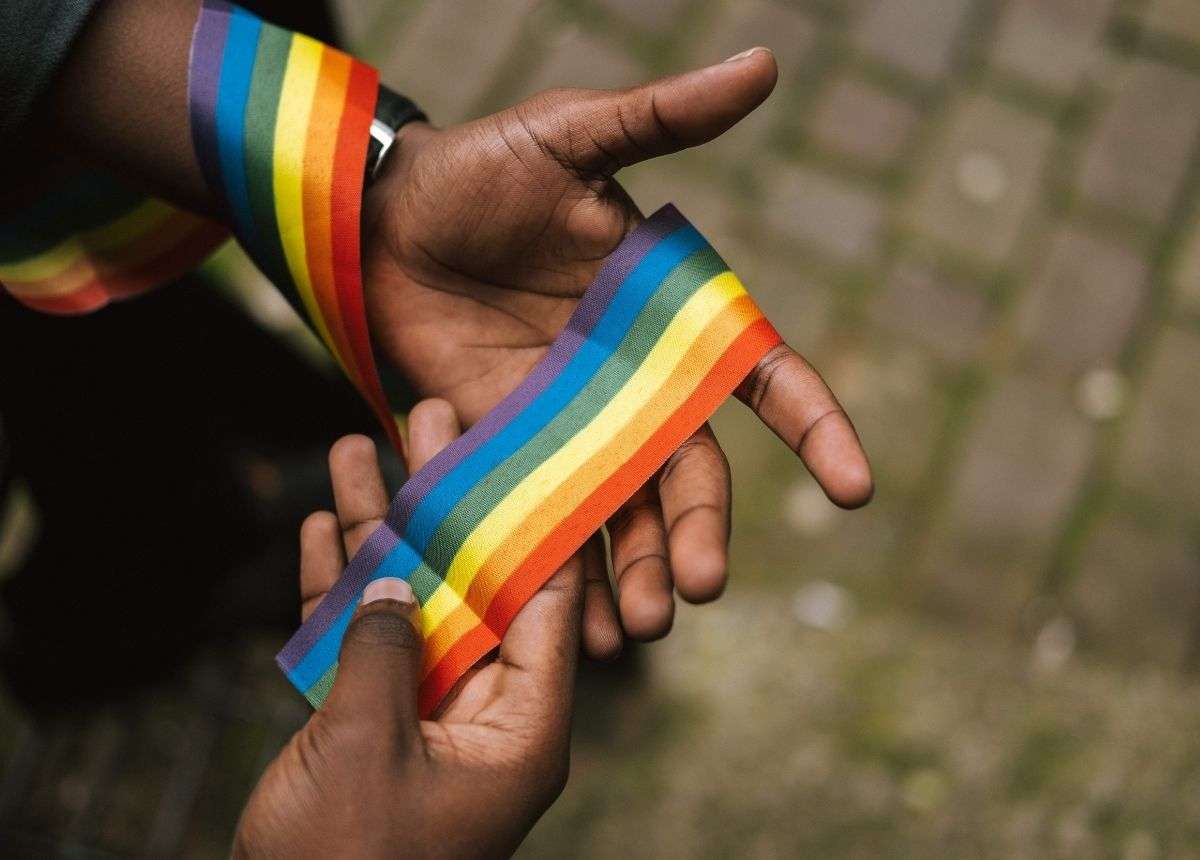
Open letter about plans to send people seeking asylum to Rwanda
Dear Prime Minister and Home Secretary,
As people with lived experience of the asylum system, refugee and migrants’ rights, anti-trafficking, human rights and civil liberties, access to justice, children’s rights, violence against women and girls’ (VAWG), arts and culture, international development, racial justice, criminal justice reform, democracy, data privacy and technology rights, disability rights, religious and faith, environment justice, and LGBTQ+ rights organisations and groups, we resolutely oppose the Government’s announcement regarding its plans to send people seeking asylum to Rwanda. This plan is fundamentally out of step with widespread public support for refugees in the UK. We demand that you scrap this plan, abandon the Nationality and Borders Bill, cease plans to overhaul the Human Rights Act and instead create humane and effective solutions for the protection of refugees.
Sending people seeking asylum to Rwanda will cause immense suffering, with the most vulnerable people bearing the brunt. This is a shamefully cruel way to treat people who have come to the UK to seek protection, fleeing persecution or conflict. The UK already accepts proportionately fewer refugees than many other countries. The relatively small numbers of people who seek asylum in the UK do so because they have some connection here – they may have family here, connections to a diasporic community, or English language skills. Many people come from countries that are connected to the UK because of war, invasion or colonisation. To send people seeking asylum to Rwanda is cruel and immoral, and is a breach of the Refugee Convention.
The proposals are modeled on the offshore processing policy operated by the Australian government in Papua New Guinea and Nauru, in which resettlement was essentially impossible and which was internationally condemned for resulting in the cruel, inhuman, and degrading treatment of refugees.
Rwanda has a poor record on human rights. Its government persecutes independent journalists and opposition parties, and carries out threats and assassinations on people who have fled the country. Only last year at the UN, the UK government itself demanded “investigations into alleged killings, disappearances and torture”. The UK government itself warned about Rwanda’s restrictions on media freedom and civil society as recently as last year. Further, the situation for LGBTQI+ people in Rwanda is so dangerous that people have fled and applied for asylum in the UK. In 2021, the UK granted asylum to four Rwandan refugees – three men and one woman – so it is contradictory to claim that it is safe to send people seeking asylum to Rwanda.
This plan will result in more, not fewer, dangerous journeys – leaving more people at risk of being trafficked. Rwanda was previously involved in receiving people removed from Israel under a “voluntary departure” scheme between 2014 and 2017. Around 4,000 people were deported under that scheme to Rwanda and Uganda and almost all are thought to have left the country almost immediately, many attempting onward travel to Europe. Testimonies collected by the International Refugee Rights Initiative found that following their arrival in Rwanda from Israel, “people were being smuggled out of the country by land to Kampala within days.” Moreover, we note the Government’s statement (in its Equality Impact Assessment for the Nationality and Borders Bill) that in relation to their plans to use deterrence to encourage people to claim asylum elsewhere, that “evidence supporting the effectiveness of this approach is limited”. Where people remain undocumented in the UK without making an asylum claim due to their fear of deportation, they will remain vulnerable to labour exploitation. This plays directly into the hands of exploiters who use threats of deportation as a means to deter their victims from coming forward to authorities.
The cost of this plan will be astronomical. Australia’s offshore detention system cost more than $1 billion per year to detain at most 3,127 people. The UK government has promised £120 million to Rwanda for a “trial”. This would be on top of the costs of detention, transportation, escorting and legal and administrative costs. It is ludicrous that such vast sums are being spent on this plan at the same time the government has refused to help people hit by the cost of living crisis. Moreover, the carbon footprint of hundreds of journeys to a country 4000 miles away will be immense and cannot be justified at this critical moment in the climate crisis.
The staggering lack of detail in these plans demonstrates to us how ill-thought through the policy is in terms of its implications and impacts on people, families and lives. For instance:
- Will people be forced onto planes going to Rwanda if they do not want to go?
- How will the government distinguish between those deserving residency in the UK and those in Rwanda? Will there be a legal procedure in the UK prior to any removal action being taken?
- Will vulnerable people, including torture survivors, survivors of trafficking, children, and people with serious mental health problems, be sent to Rwanda? Will people who are coming to the UK because they have family members here, be sent to Rwanda?
- Is it possible to claim asylum in Rwanda on sexual orientation and gender identity grounds – i.e. does Rwanda recognise LGBTQI+ people as being members of a particular social group under the Refugee Convention? If yes, how many cases on these grounds do they have per year and what is the grant rate?
- How will the government guarantee access to legal advice and representation and access to a court of law?
- Will there be any nationalities or categories of people that are excluded from being sent to Rwanda?
- Can the government confirm that people on arrival would be provided with means to support themselves, accommodation, food and clothing?
- Does the government’s repeated reference to ‘single men’ include those who have families that are still abroad and were hoping to be reunited under family reunion rules?
- What is the estimated cost per person of the plan to send people to Rwanda?
- What processes will be in place to identify and support victims of trafficking deported to Rwanda?The UK Government would, under law, remain responsible for protecting the people it sends to Rwanda from human rights abuses, including physical and sexual assault, persecution or cruel, inhumane or degrading conditions and treatment.Ultimately, these plans are fundamentally out of step with public attitudes towards refugees. While the Home Office has floundered in its response to Ukrainians and Afghans seeking safety in the UK, the general public has indicated that it welcomes refugees.The ultimate victims will be the most vulnerable in our society, who, in attempting to rebuild their lives after experiencing persecution, will be put at risk of experiencing further human rights abuses and taking their own lives. This will have a disproportionate impact on people from the Global South, who make up the majority of people arriving in the UK to claim asylum.This plan simply cannot pass – we urge you to scrap these plans and the Nationality and Borders Bill, which has not yet passed and has received strong opposition in the House of Lords. We also oppose the proposed overhaul of the Human Rights Act.Signed (we will send the letter on 14 April but keep updating this on a rolling basis)
Bail for Immigration Detainees
Liberty
The Joint Council for the Welfare of Immigrants
Rainbow Migration
Haringey Migrant Support Centre
Govan Community Project
Focus on Labour Exploitation
Good Chance Theatre
Loraine Masiya Mponela, CARAG
Race Equality Foundation
Big Leaf Foundation
Dr Edie Friedman, Executive Director, The Jewish Council for Racial Equality (JCORE)
Julia Rampen, Media Director, IMIX
West London Welcome
The Pickwell Foundation
Samphire
Waging Peace
Routes
William Gomes, Director, The William Gomes Podcast The William Gomes Podcast
Refugee Youth Service
Micro Rainbow
The Refugee Buddy Project
forRefugees
Anti-Trafficking Monitoring Group
Room to Heal
VITA
Ice and Fire Theatre
Asylum Support Appeals Project
Latin American Women’s Rights Service
Right to Remain
Voices in Exile
Our World Too
Stonewall
Taskforce on Victims of Trafficking in Immigration Detention
Asylum Welcome
Association of Visitors to Immigration Detainees
Young Roots
Praxis
Streets Kitchen
Kalayaan
Our Second Home
Migrants’ Rights Network
Jesuit Refugee Service UK
Medical Justice
Law Centres Network
Labour Exploitation Advisory Group
Jesuit Refugee Service
Herts for Refugees
Boaz Trust
Gatwick Detainees Welfare Group
Unlock Democracy
HOPE not hate
Refugee Compassion
Best for Britain
Souad Talsi MBE, Founder of Al-Hasaniya Moroccan Women’s Centre
Merseyside Solidarity Knows No Borders
Asian Women’s Resource Centre
Middle Eastern Women and Society Organisation-MEWSO
Refugee Action
Migrant Voice
Amna
Committee on the Administration of Justice
RAS Voice ( Refugee and Asylum Seeker Voice)
After Exploitation
Polish Migrants Organise for Change (POMOC)
Leicester City of Sanctuary
Sussex Aid For Refugees
Detention Action
Helen Bamber Foundation
End Violence Against Women Coalition
Freedom United
Southall Black Sisters
René Cassin, the Jewish voice for human rights
Unseen
René Cassin
Refugee Aid Network
Indoamerican Refugee and Migrant Organisation (IRMO)
African Rainbow Family
Action Foundation
Manchester Migrant Solidarity
Children England
People’s History Museum
Bond
Allies for Justice
National AIDS Trust
New Weather Institute
Legal Aid Practitioners Group
Sophie Hayes Foundation
Another Europe is Possible
City of Sanctuary UK
Open Rights Group
Stand Up To Racism
Race Equality First
UK Must Act
Kent Refugee Action Network
Sussex Aid For Refugees
Childrens Law Centre
Article 39
Asylum Aid
Asylum Matters
Refugee Legal Support
JustRight Scotland
Asylum Matters
Fair Vote UK
Stand For All
Hope for Justice
Trinity Safe Space
Quakers in Britain
Statewatch
Veecca for Fresh Grassroots Rainbow community
350.org
MERSEYSIDE REFUGEE SUPPORT NETWORK AND LIVERPOOL CITY OF SANCTUARY GROUP
Mona Adam for Shaman PR
Student Action for Refugees
Jubilee Debt Campaign
Teeslankas
Foxglove Legal
Together100 and Chorleywood4refugees
Street Talk
Birmingham City of Sanctuary
Care4Calais Liverpool
Unjust
Quaker Asylum and Refugee Network
Street Talk
RefuAid
Advice NI
RefuAid
The Snowdrop Project
BCHA (Bournemouth Churches Housing Association)
ECPAT UK
Share Knowsley
Scottish Refugee Council
Women for Refugee Women
St Vincent de Paul RC Church Justice & Peace group
Humanists UK
Methodist Asylum Project, Middlesbrough
Safe Passage International
Lifeline Options CIC
Disability Rights UK
Birmingham Schools of Sanctuary
Red Pepper magazine
Freedom from Torture
Solidarity with Refugees
Greenpeace UK
Mid Wales Refugee Action
Channel Rescue
Kanlungan Filipino Consortium
Citizens of the World Choir
Big Brother Watch
FODI (Sunderland)
Action for Refugees in Lewisham
Migrant Help
One Strong Voice
Medact
One September
Medaille Trust
Reading Refugee Support Group
Reading City of Sanctuary
St Agnes & St Aidan Parish
The Equality Trust
Shropshire Supports Refugees
INQUEST
Seraphus
No To Hassockfield (Derwentside IRC)
REACHE Northwest
Volunteer
People Not Borders
Runnymede Trust
BARAC UK
BARAC UK
JRAN
Human Rights Consortium Scotland
Nijjormanush
Migration Justice Project, Law Centre NI
Lewisham Refugee and Migrant Network
Cribs International
Farnham Help for Refugees in the UK and Abroad
Asylum link Merseyside
SOLA ARTS
Church and Peace
Refugees Welcome Crawley
Foundation ofJewish heritage and One Vision
Social Workers Without Borders
Defend Our NHS
Christian Brothers
Migrant English Project Brighton
Farnham Help for Refugees in the UK and Abroad
St Albans for Refugees
Humanity Aid
Derbyshire Refugee Solidarity
St Dunstan’s Catholic Primary School
Bekah Lucking
Humans for Rights Network
Voices in exile, brighton, trustee
Refugees Welcome Crawley
Women in Travel cic
Wansworth welcomes refugees
Brighton and Hove Freedom from Torture Supporters’ Group
IKWRO-Women’s Righrs Organisation
Farnham Help for Refugees in the UK and Abroad
Savera UK
Kalsi Solicitors
Ekklesia
Bristol Refugee Rights
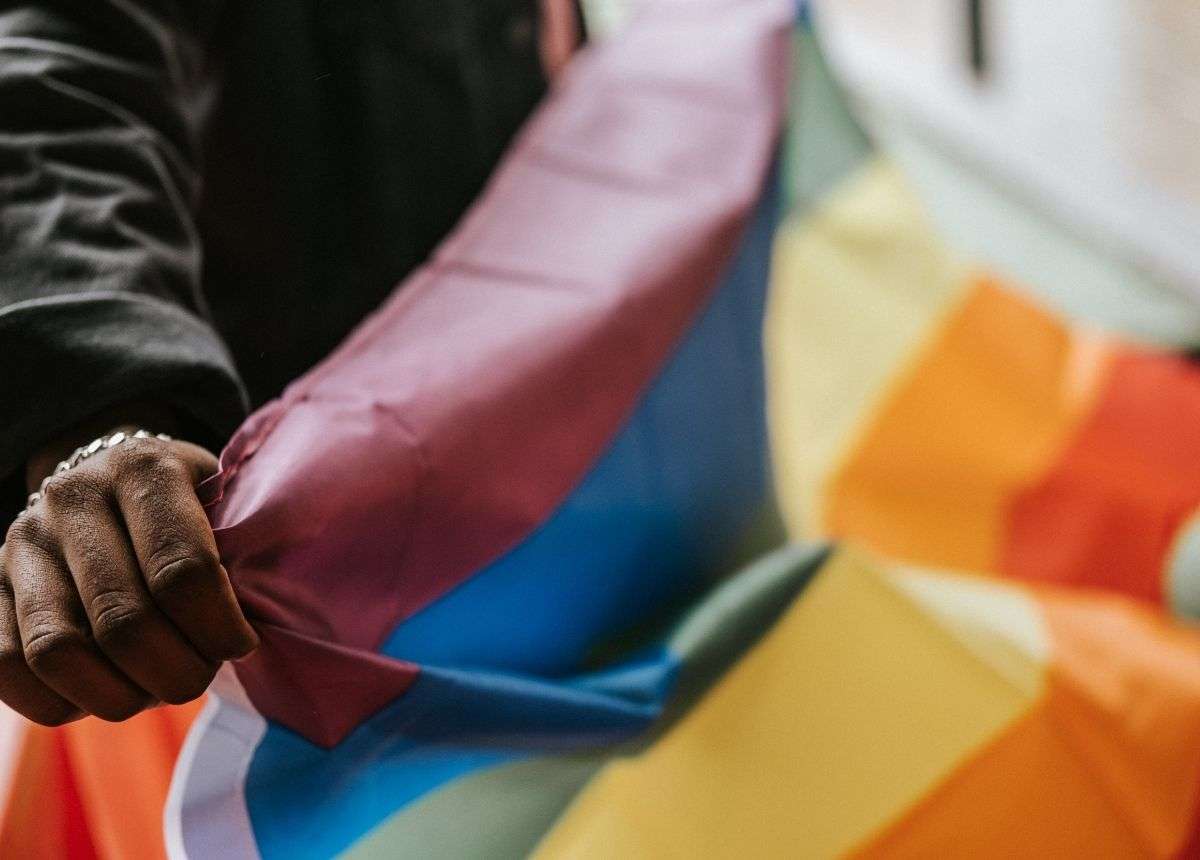
Rwanda is not safe for LGBTQI+ people
The government has announced that they intend to send people who are seeking asylum in the UK to Rwanda and have their asylum claims processed there. This will include LGBTQI+ people who have fled life-threatening situations in their home countries.
We find it extremely concerning as there is widespread evidence of ill-treatment and abuse faced by LGBTQI+ people in Rwanda. For instance, Human Rights Watch reported last year that:
“Rwandan authorities rounded up and arbitrarily detained over a dozen gay and transgender people, sex workers, street children, and others in the months before a planned June 2021 high-profile international conference.”
“People interviewed who identified as gay or transgender said that security officials accused them of “not representing Rwandan values.” They said that other detainees beat them because of their clothes and identity. Three other detainees, who were held in the “delinquents’” room at Gikondo, confirmed that fellow detainees and guards more frequently and violently beat people they knew were gay or transgender than others.”
Nizeyimana Seleman, Executive Director of Hope And Care Organization, a Rwandan group that works to increase educational opportunities and health services to LGBTQ youth and sex workers, is quoted as saying that: “Homosexuality is not criminalized in Rwanda, but many LGBTI people keep their sexuality and gender identity secret in an attempt to avoid rejection, discrimination and abuse, which in the long run inevitably denies them their basic human rights.”
The situation for LGBTQI+ people in Rwanda is so poor that it is a source country for people seeking asylum in the UK based on their sexual orientation, albeit in low numbers, and we have previously provided support to LGBTQI+ people from Rwanda.
The worrying reports come after last week, the House of Lords confronted MPs for a second time and amended the Nationality and Borders Bill again. On offshore processing, Lords’ amendments made it a requirement for the government to name the country where they plan to send people seeking asylum as well as to reveal the cost of the plans, and to obtain approval from Parliament before proceeding.
These amendments won’t solve all the issues with the Bill, but they will certainly make this government think twice before sending LGBTQI+ people to remote offshore asylum camps.
It is therefore essential that we keep the pressure on MPs until the 20 of April, when the Nationality and Borders Bill returns to the House of Commons.
We are asking MPs to use their vote to protect LGBTQI+ people seeking asylum, and to support the Lords amendments on offshore processing . Will you help by writing to your MP?
You can find your MP and their email address on the parliament website and below is a template email you could use. Make sure that you include your full name and address at the bottom of the email to show you are a constituent – otherwise your MP is unlikely to respond.
Dear {MP NAME},
As one of your constituents, I am writing to you today because I am concerned about the effects that the Nationality and Borders Bill will have on LGBTQI+ people seeking asylum in the UK.
I understand that the government is proposing to send people who come to the UK seeking safety from persecution to Rwanda to process their asylum claims offshore. For LGBTQI+ people seeking asylum, this will be a disastrous policy – there is widespread evidence from Human Rights Watch and others that LGBTQI+ people face discrimination and abuse in Rwanda and may have to hide their sexual orientation or gender identity. We cannot allow people who have fled persecution because they are LGBTQI+ to be sent offshore and put in further peril.
I am asking you to help stop this from happening by supporting Lords amendments 53B, 53C and 53D when the Bill returns to the House of Commons on the 20 of April 2022.
Please let me know how you will vote on these amendments and if there is anything else you can do to help stop this from happening.
I look forward to hearing from you.
Yours sincerely,
{YOUR FULL NAME AND ADDRESS},
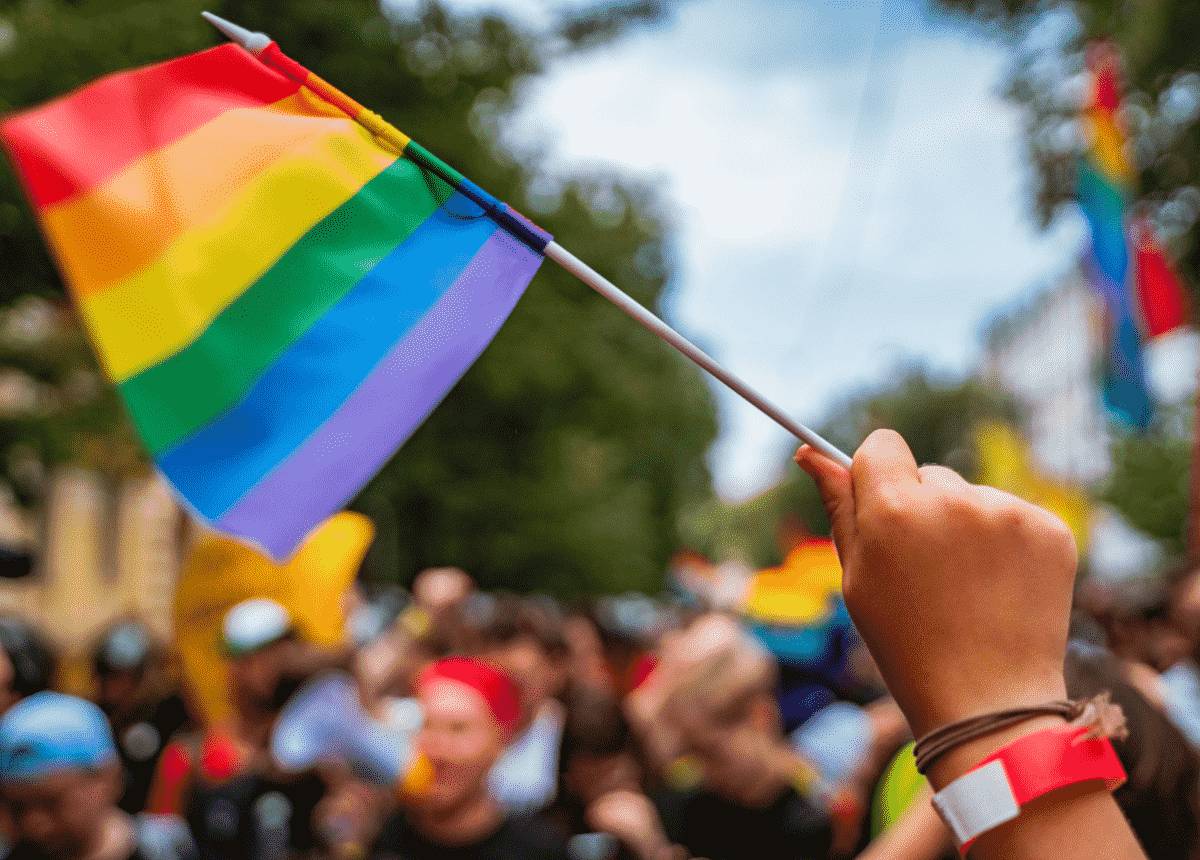
Last chance for MPs to really stand up for LGBTQI+ people seeking refuge
As thousands of Ukrainians flee their war-torn country every day, the compassionate response from people across Europe has been heartwarming. Here in the UK more than 150,000 people have offered to open their homes to refugees, showing just how badly our government misjudged the British public when drafting its #AntiRefugeeBill. We are a diverse and welcoming society, not one that wants to criminalise and impoverish those seeking safety here.
In this context it was great to see the #AntiRefugeeBill suffer some major defeats in the House of Lords this month. Although the Lords disappointingly ran out of time to vote against the increased standard of proof for asylum claims, they did oppose two important clauses that would have serious consequences for LGBTQI+ people: The one that would class LGBTQI+ people that don’t claim asylum right after arrival as a second class of refugee and ‘less credible’ (Clause 11) and the one that could send LGBTQI+ people to countries that are openly anti-LGBTQI+ to process their asylum claims (Clause 12).
The bill returns to the Commons tomorrow and this is the last chance for MPs to really stand up for LGBTQI+ people seeking refuge. To stop some of the most harmful aspects of the #AntiRefugeeBill, they need to support these vital amendments made in the Lords.
Please sign this petition that we co-signed or help us spread the word on Twitter today by retweeting us or posting using #AntiRefugeeBill.
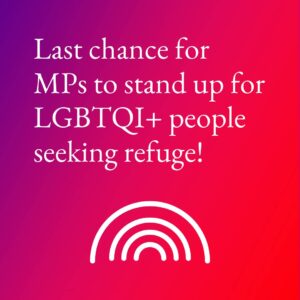
Ask your MP to show some love for LGBTQI+ people seeking asylum
We should all be free to show our love for one another today, but for many LGBTQI+ people seeking asylum here that’s just not possible.
Some will have been placed in immigration detention, where they face discrimination, harassment and violence if their sexual orientation is or gender identity discovered. Others will be sent back to countries where they could be persecuted or killed, because they have been unable to “prove” that they are LGBTQI+.
The Government’s #AntiRefugeeBill will make this so much worse, placing more LGBTQI+ people in unsafe institutional accommodation that is like detention, and raising the bar for people trying to prove they are LGBTQI+.
That’s why, this Valentine’s Day, we’re asking MPs to show some love for LGBTQI+ people fleeing persecution, by promising to defend LGBTQI+ asylum when the #AntiRefugeeBill returns to the House of Commons.
Will you help by tweeting your MP on Monday 14 February?
Simply:
- Find your MP’s Twitter handle
- Open a draft tweet
- Copy the message below into the draft tweet after your MP’s Twitter handle
- Your message will automatically include the valentines image below if you keep the “pic.twitter” link at the end.
- Tweet away!
Tweet:
We should all be free to show our love today, but for many LGBTQI+ people seeking asylum here that’s not possible. The #AntiRefugeeBill will make it much worse. As my MP please defend LGBTQI+ people when the Bill returns to the Commons pic.twitter.com/tE8S6UyQry


